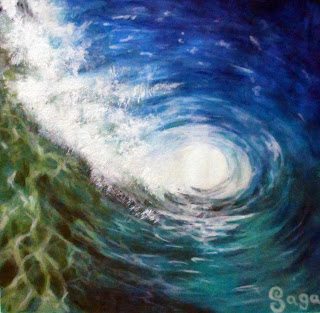Drawing materials: Essentials to start drawing
If you wanna see my
work here's
my "website"
link https://sagafinearts.000webhostapp.com
,
my
"deviantart" account http://sagafinearts.deviantart.com
If you love art and you want to start learning it, my personal advice for you is to start with graphite drawing. It's the key to mastering art.
Starting with
it has several benefits:
·
It's the most ancient and
popular drawing medium: that's you can find many sources to learn from; books,
videos, blogs….etc.
·
You can afford it even if
you're on budget.
·
You can use it to draw with
different styles: realism, mange, comics…etc.
·
You can draw from really quick
sketches to super detailed wok.
·
You gain incredible knowledge
about: lights and darks, contrast and values, highlights and shadows; which is
the most important basics for painting.
After
deciding to start with graphite drawing, the next thing you need to know is
your tools.
What drawing
materials essential for you to start drawing:
As I said
before you can start even if you're on budget; you don't need a lot of tools
and they're not expensive.
1- Your pencils:
You need two kinds of pencils;
·
Wooden graphite pencils:
Those you can get either individually or as a set
with different led sizes, I recommend you to start with a set of at least six
pencils. I use STAEDTLER pencils they're affordable and I'm happy with them,
but you can use whatever brand you like.
·
Mechanical pencils:
My go to mechanical pencil is rotring 0.5 with HB
0.5 led for sharp finer details.
2- Your erasers:
You need three kinds of erasers;
·
Rubber Eraser: for wide
areas.
· Pencil
shaped erasers: for fine details
used to draw hair, fur and highlights.
· Kneaded Eraser: It can be pulled and fashioned
into different forms to create specific marks and fine
details.
3- Sharpener:
You can use either the manual pencil sharpener or the electric pencil sharpener.
4- PITT graphite pure pencils:
My go to pencils are the 2900 9B and the 129909
9B pencils from FABER-CASTELLE.
They're great for covering large spaces quickly and
you can get super dark results with them; which improves the drawing contrast
to get better results.
5- Charcoal or Conté :
Many drawings can't be finished without charcoal
which is used to get the darkest shadows. Charcoal comes in both stick and pencil form.
Sticks of charcoal are usually either
“vine” or “compressed”. Vine charcoal is softer and produces lighter marks,
while compressed charcoal – which is concentrated, produces darker marks.
Charcoal pencils are either "soft" or "hard".
Conté is similar to charcoal in richness of color – however the makeup of
the material is different. Charcoal is burnt organic material, while
conté is made of clay constituents. It has a harder led than charcoal, so its
pencils are better for details.
You can you a brush with charcoal and Conté sticks by scraping some on a
paper and using the brush to apply soft shadows.
6-
Blending stumps:
Blending stumps are essential for smudging or moving material around on
the surface. A blending stump allows the artist to create gradations in
value without introducing the oils of the finger (through finger smudging)
which can make a drawing look dirty or uncontrolled.
Blending stumps also allow the artist to create gradations and smooth
applications of value in areas of detail that may be hard to get to otherwise.
7-
Sandpaper block:
It's used to wear down the pencil shaped eraser to maintain a sharp edge
to easily create fine details.
8-
Piece of fabric and q tips:
Fabric (Chamois
or cotton) and tissue are great for blending large areas
and creating smooth skin.
q tips is
another way for blending small areas.
9-
Sketch book:
You can either use a small sketch
book or a large one. There're so many brands, but personally
I prefer FABRIANO soft surface sketches.
You can
also use FABRIANO individual sheets.
10-
Fixative:
It's used after finishing the drawing only to seal it and prevent it from
fading over time.
11-
Masking tape:
It's used to tape the edges of the drawing and removed after finishing
carefully for getting a clean fine edge, also it's used to tape the paper on
your drawing board or whatever surface you use.



















Comments
Post a Comment